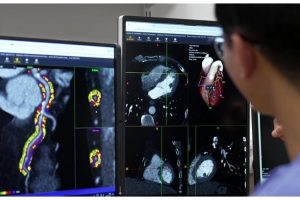BMJ has been recognised for its project to help frontline health professionals tackle infectious diseases, an important contributor to global health security
BMJ’s Clinical Decision Support Training Initiative has been awarded the prize for Innovation in Global Security by the Geneva Centre for Security Policy (GCSP) at a ceremony in Geneva yesterday (29 November 2018).
The educational initiative gives healthcare professionals access to the latest evidence-based information on infectious diseases through BMJ’s online learning and decision support tools, BMJ Best Practice and BMJ Learning.
By improving the knowledge and skills needed for early detection and diagnosis, doctors are more prepared for the prevention and management of infectious diseases.
GCSP established the prize in 2015, under its Geopolitics and Global Futures Programme, to recognise innovative approaches to addressing international security challenges.
The prize rewards those who have shown dedication to sustainable security, and preservation of human dignity, security and justice.
This year, GCSP received over 150 applications from across the world, addressing issues such as human rights violations, defence, education and climate change.
Mitali Wroczynski, Head of Strategic Partnerships for Global Health at BMJ says: “We are truly honoured to have been recognised for this important award. New and re-emerging infectious diseases are a major threat to global security, therefore it is essential that frontline healthcare professionals can provide patients with immediate treatment, referral and isolation to help prevent wider spread of disease”.
She adds: “Our programme is giving healthcare professionals the support and confidence to make the right decisions, while also helping to address long-term health service challenges and improving their resilience to outbreaks.”
Launched in 2016, BMJ’s Clinical Decision Support Training Initiative focuses on pandemic preparedness and prevention by improving detection, diagnosis and management of infectious diseases. It aims to achieve health security by developing the medical workforce and strengthening health systems in the long term.The initiative has already trained more than 12,000 infectious disease specialists and doctors across 900 institutions across the Middle East, Central and South East Asia regions.
The programme is strong on measurement:of outcomes: on completion of BMJ Learning modules in infectious diseases, an improvement score of 34% was recorded between pre- and post-tests. And over 30,000 infectious disease topics have been viewed in BMJ Best Practice since the initiative was launched.
Dr Maia Kipiani, an Epidemiologist at the National Center for Tuberculosis and Lung Diseases in Georgia says: ”BMJ Best Practice and BMJ Learning have already helped us identify where we could provide more cost-effective care, especially in relation to respiratory diseases, in certain rare disorders and in diseases that present with the same characteristics. This has resulted in a more timely and cost-effective diagnosis of the correct disease. In addition, we can now start to work on the long-term application of the information and guidelines to plan and manage services for patients with tuberculosis and other infectious and non-infectious diseases.”





















